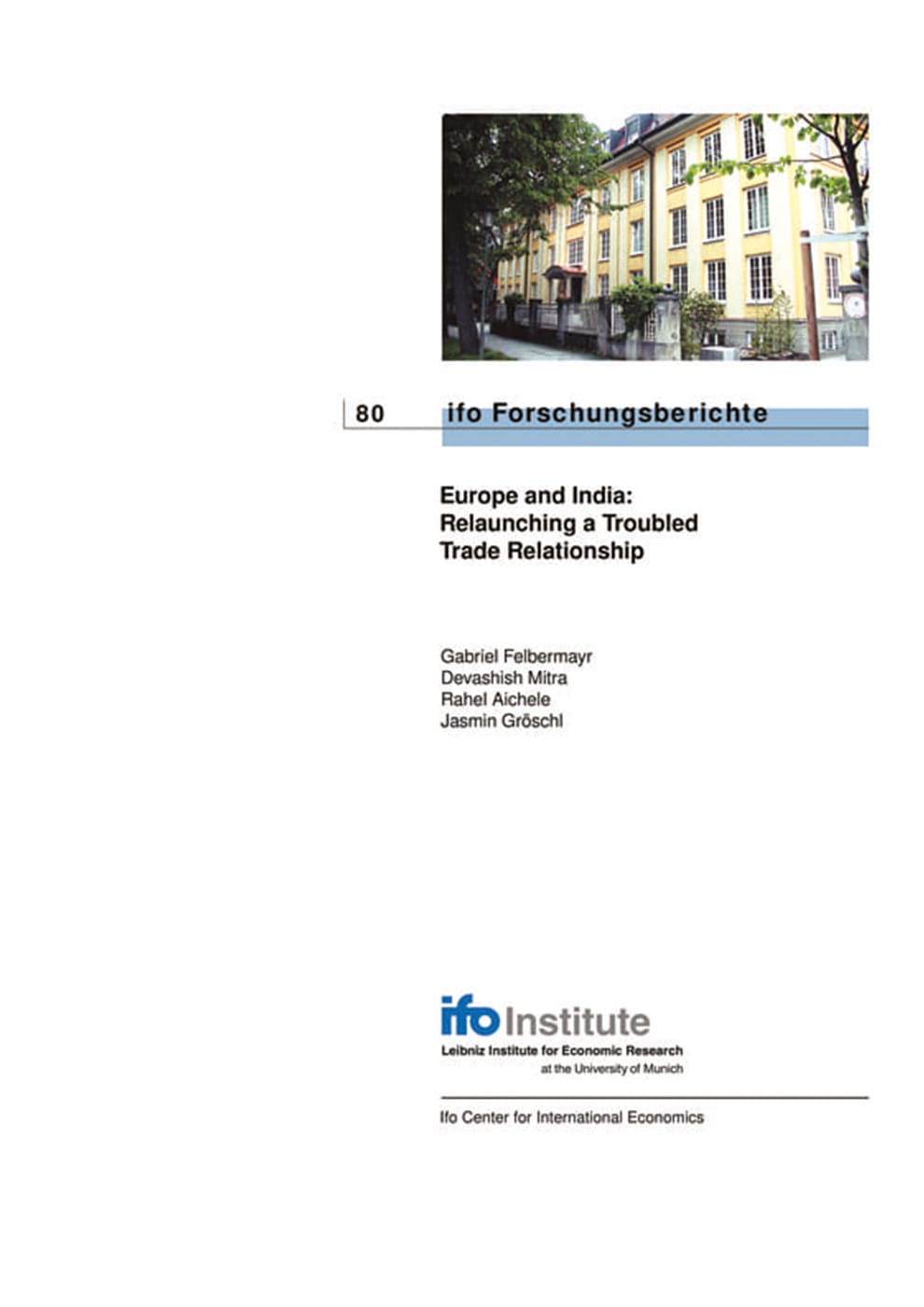Europe and India: Relaunching a Troubled Trade Relationship
ifo Institute, Munich, 2017
ifo Forschungsberichte / 80

Since June 2007, the EU and India have been negotiating a comprehensive free trade agreement, but negotiations broke down in 2013. Nevertheless, both sides have expressed their desire to revive talks on the Broad-based Trade and Investment Agreement (BTIA). To quantify potential economic consequences, we use a multi-country, multi-industry Ricardian trade model with national and international input-output linkages. Based on the assumption that the FTA would eliminate all tariffs between the EU and India and reduce non-tariff barriers, we simulate trade, value added, and welfare effects of the BTIA. The long-run level of real per capita income would change by 1.30% in India and by 0.14% in the EU. We find that outsiders to the agreement remain largely unaffected relative to the status quo. However, substantial regional heterogeneity exists across the 134 geographical, investigated entities. Due to an agreement, EU-Indian trade could approximately double particularly in business services. We find a small amount of trade diversion due to tightly integrated value chains, but a clear effect on structural change in India. So, at a first glance, both parties should have an interest in forming a FTA.